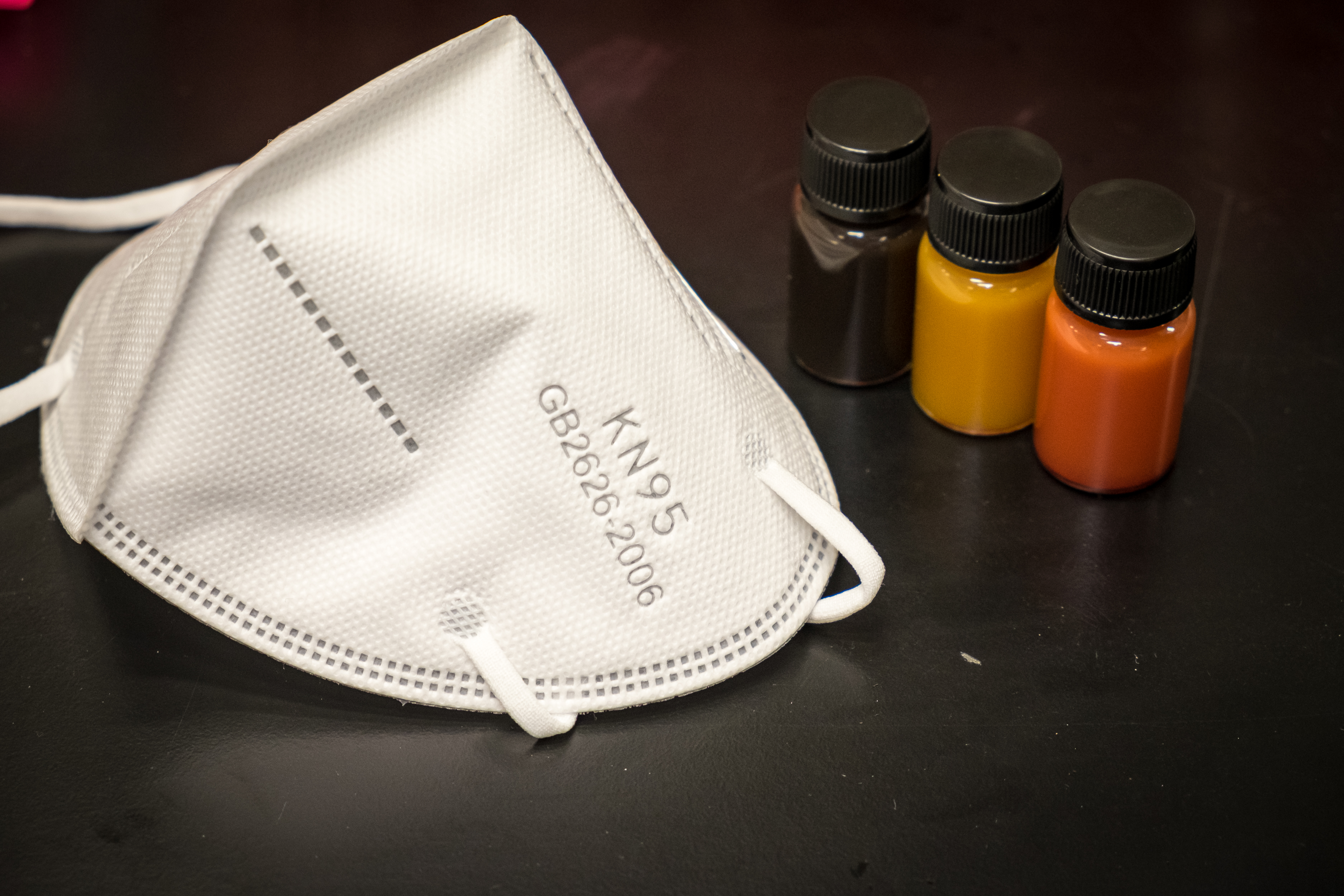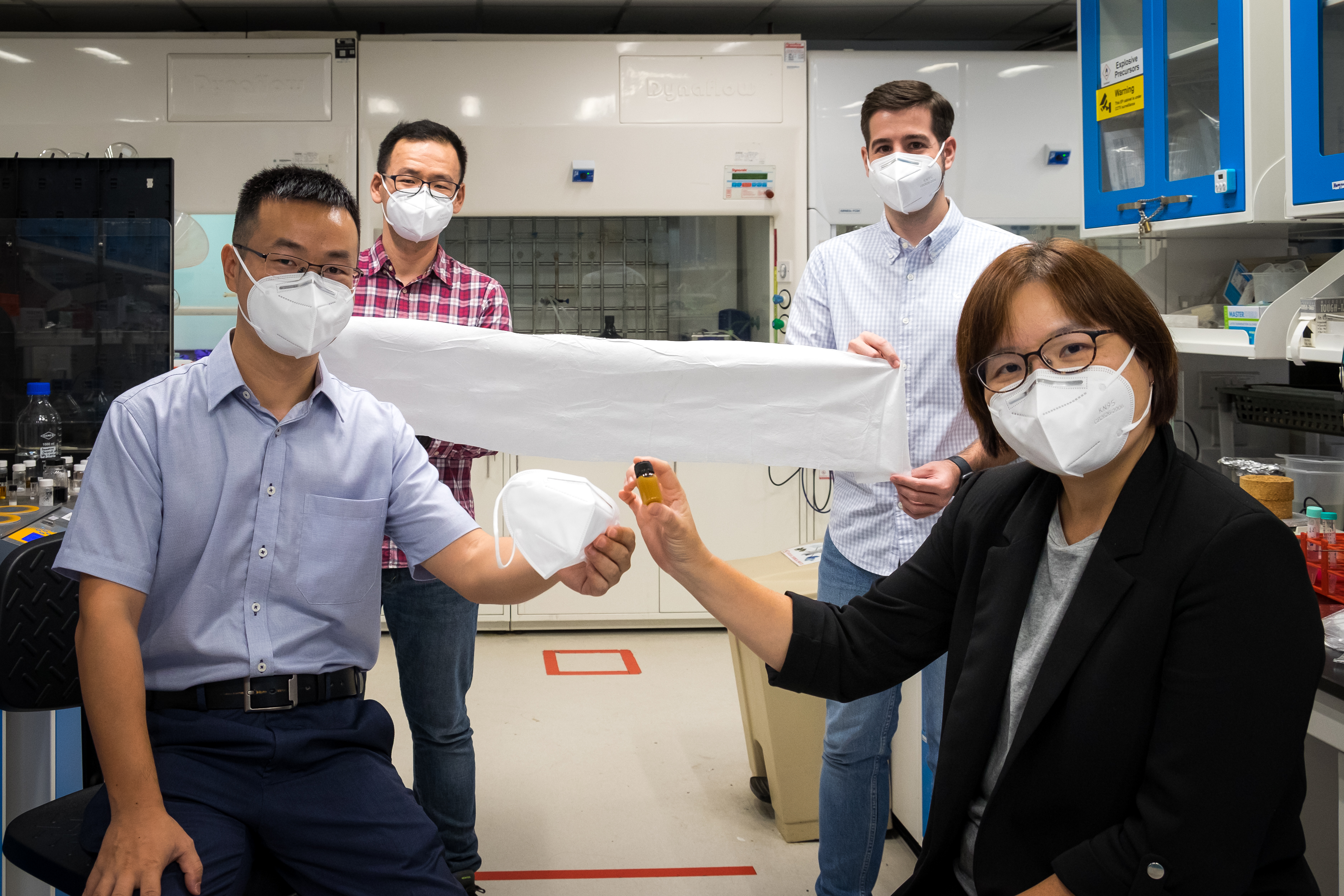Scientists from the Nanyang Technological University of Singapore (NTU) have developed a nanotech mask that can effectively filter out 99.9 per cent of bacteria, viruses and particulate matter.
Double protection
The fabric mask, invented by Associate Professor Liu Zheng, has a unique property that attracts all nanoparticles and germs.
It is further fortified with an antimicrobial coating made from copper nanoparticles developed and patented by NTU Professor Lam Yeng Ming.
This coating is an antimicrobial nanoparticle solution sprayed onto the mask. It helps to reduce the spread of the bacteria, and can kill multi-drug resistant bacteria trapped by the mask fibres in a mere 45 seconds.
The novel coating is effective for at least six days.
The fabric mask also has "excellent filtration efficiency", surpassing those of N95 masks, and can be washed and reused over 10 times.
Together with the coating, it provides a double layer of protection, as compared to conventional surgical masks.
Experiments show that the mask is also able to attract and trap particulate matter, from PM0.3 to PM10, with a filtration efficiency of 99.9 per cent.
 Photo from NTU
Photo from NTU
Safe for users
Tests were conducted on the antibacterial effectiveness of the mask, and simulated real life conditions.
Multi-drug resistant bacteria in droplet form were introduced to the fabric surface, and it was observed that all the bacteria died in 45 seconds.
This is due to the nanoparticles in the antimicrobial coating — their extremely small size provide a huge surface area for the viruses and bacteria to collect on.
Copper oxide in the coating also damages "important cell structures" in the bacteria, causing it to die.
Users need not worry about the copper oxide posing any risk of toxicity to humans — the nanoparticle coating was put through harsh conditions for 120 washing cycles with soap and scientists found that there was almost no copper loss.
Additionally, the nanoparticles are bonded to the fibres inside the mask, so there is no contact with human skin when the mask is worn.
Working towards scaling up production
The current production process of the nanoparticle coating can be scaled up and mass-produced.
Lam and his team are already working with a local company to use the antimicrobial nanoparticle solution to coat their products.
The team of scientists is now looking to work with local industry partners who are keen to license and scale up the production of their 2-in-1 mask.
 Photo from NTU
Photo from NTU
Top photo from NTU
If you like what you read, follow us on Facebook, Instagram, Twitter and Telegram to get the latest updates.
